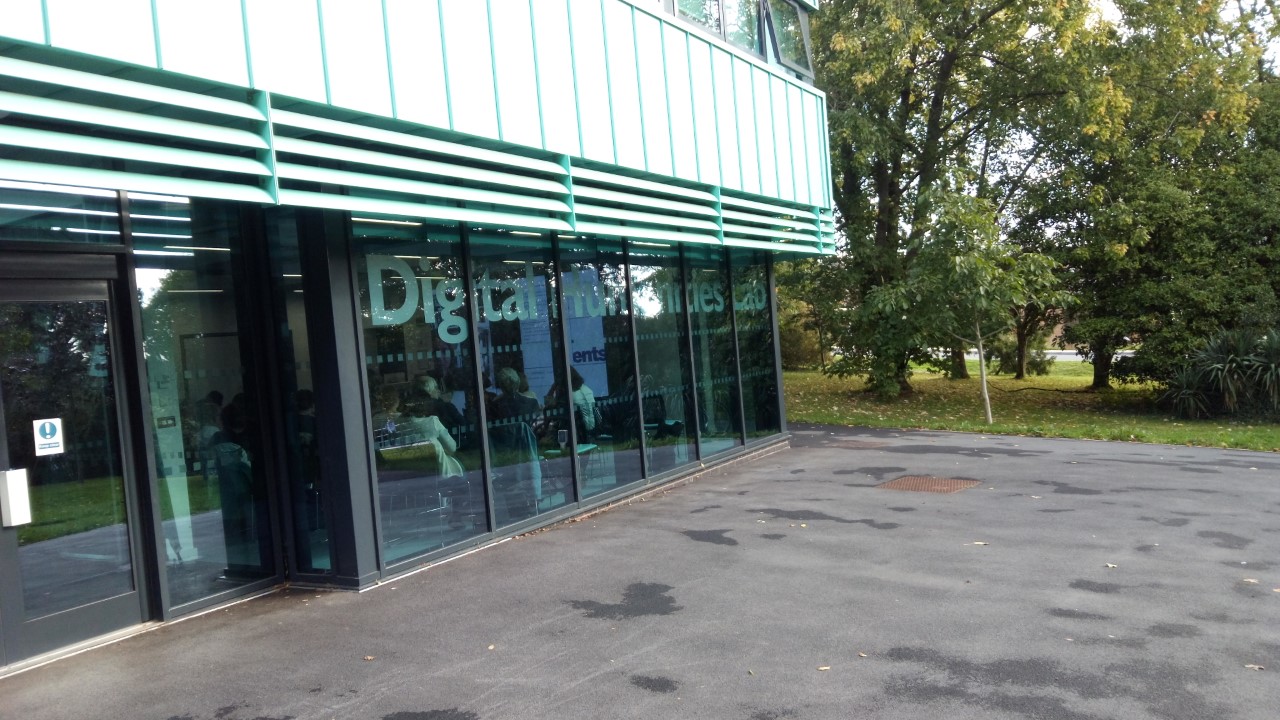
A recent RCC visit to the humanities department of Exeter University has strengthened ties between the British institution and The University of Queensland.
Marco Fahmi, RCC’s Manager of Digital Humanities and Social Sciences (DHSS) projects, visited Exeter University from 23 September to 3 October, thanks to the support of the QUEX Institute, a partnership between UQ and Exeter University launched in 2017 to bolster the institutions’ joint global research impact.
The aim of Marco’s visit was to expand collaboration between RCC, UQ and the University of Exeter’s Digital Humanities Lab (DH Lab), under the QUEX Institute.
Following his Exeter visit, Marco said the College of Humanities there was happy to explore collaborations with UQ and RCC either through QUEX-funded projects or those mediated by the DH Lab.
There was also interest in an exchange program for UQ’s graduate digital research fellows for short periods (e.g. 5–6 weeks).
“Overall, people in the departments and in the lab were keen to continue the conversation on potential collaborations as we were at similar levels of maturity,” said Marco.
“Once we have worked out a plan for DHSS at UQ in 2020, we can have a more formal discussion on how we can work together.”
As well as investigating opportunities to build collaborations and joint research activities between Exeter academics and RCC and UQ’s humanities and social sciences researchers, Marco was also keen to check out the setup and operations of the DH Lab with a view to possibly creating a digital lab at UQ.
He said the DH Lab is in two parts: the DH office where staff are based and work; and the lab proper, composed of a reception desk staffed by interns, a multimedia room (similar to RCC’s videoconferencing seminar room), a regular classroom and makerspace.
The DH Lab, which has a mix of academic, technical and library staff, offers some training in its areas of expertise and has a monthly seminar program with invited speakers from the university and elsewhere.
The two full-time and permanent research fellows primarily offer consulting services to academics putting together project proposals and helping to deliver them.
Once a project is completed, the DH Lab commits to maintaining the project digital outputs for another five years before they are retired or archived.
The DH Lab is currently putting together a skills development program in the undergraduate programs in the humanities college and possibly a digital humanities-focused undergraduate major in the future.
The DH Lab has an annual intake of about six interns who are undergraduates from across the college. They are paid casual rates and carry out office management tasks, although they can also be involved in the research projects if they wish.
Marco’s trip was funded by the QUEX Professional Services Staff Fellowship program, which is designed to provide professional development opportunities and to share best practice and experience between colleagues at UQ and the University of Exeter.
The QUEX Institute currently has three research themes: environmental sustainability; healthy aging; and physical activity and nutrition.
“I am hoping my visit will lead to a fourth theme around digital humanities,” said Marco.



